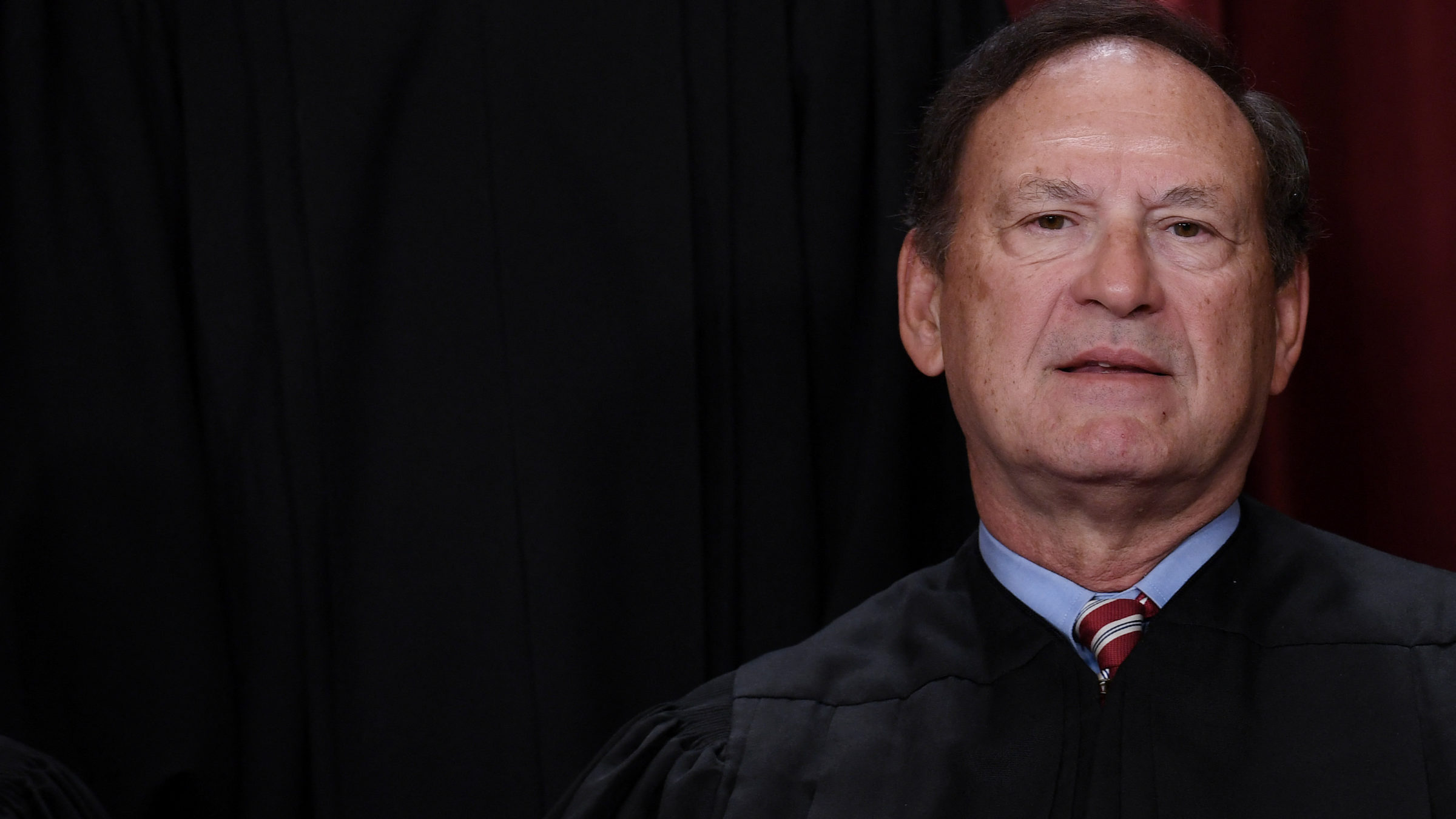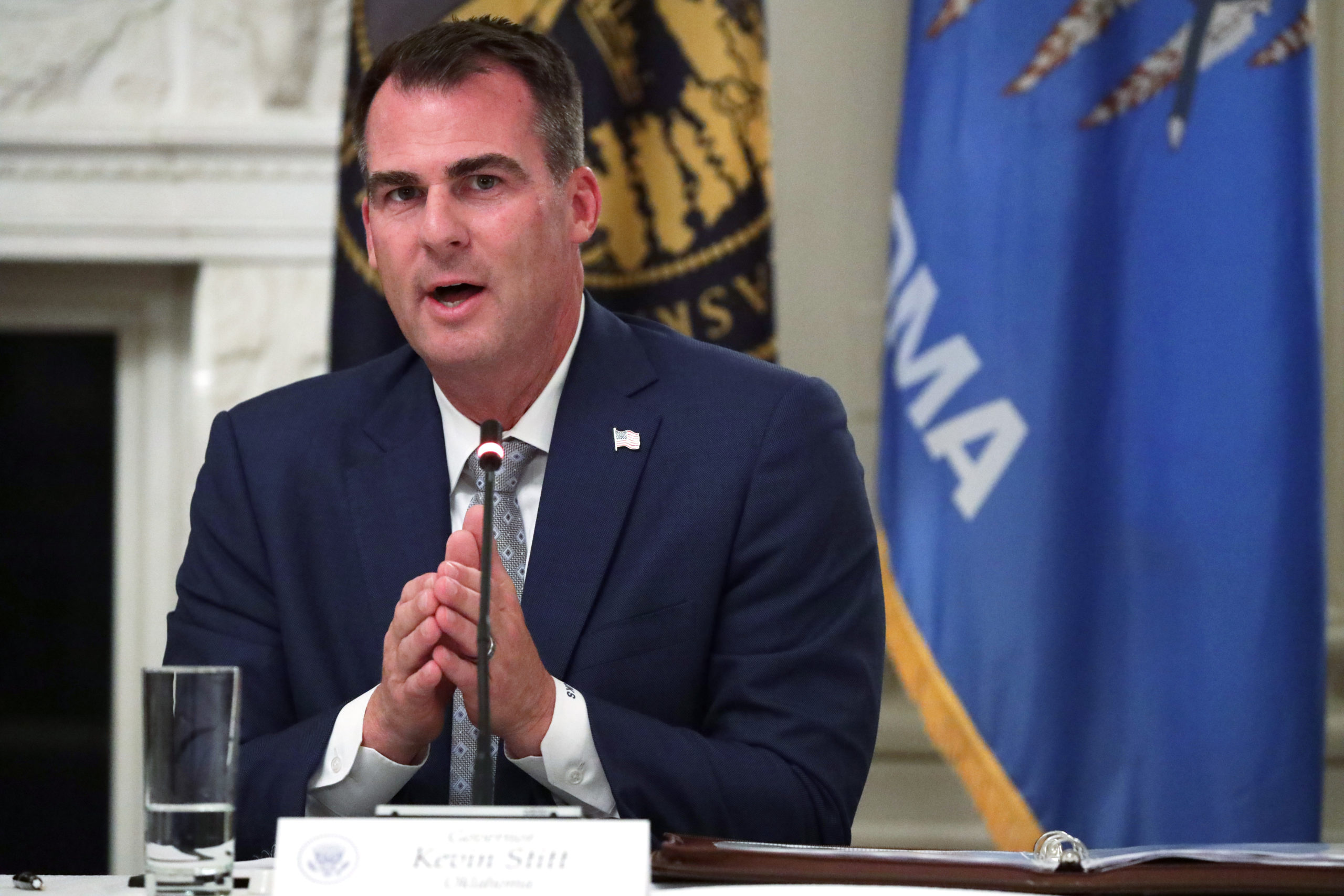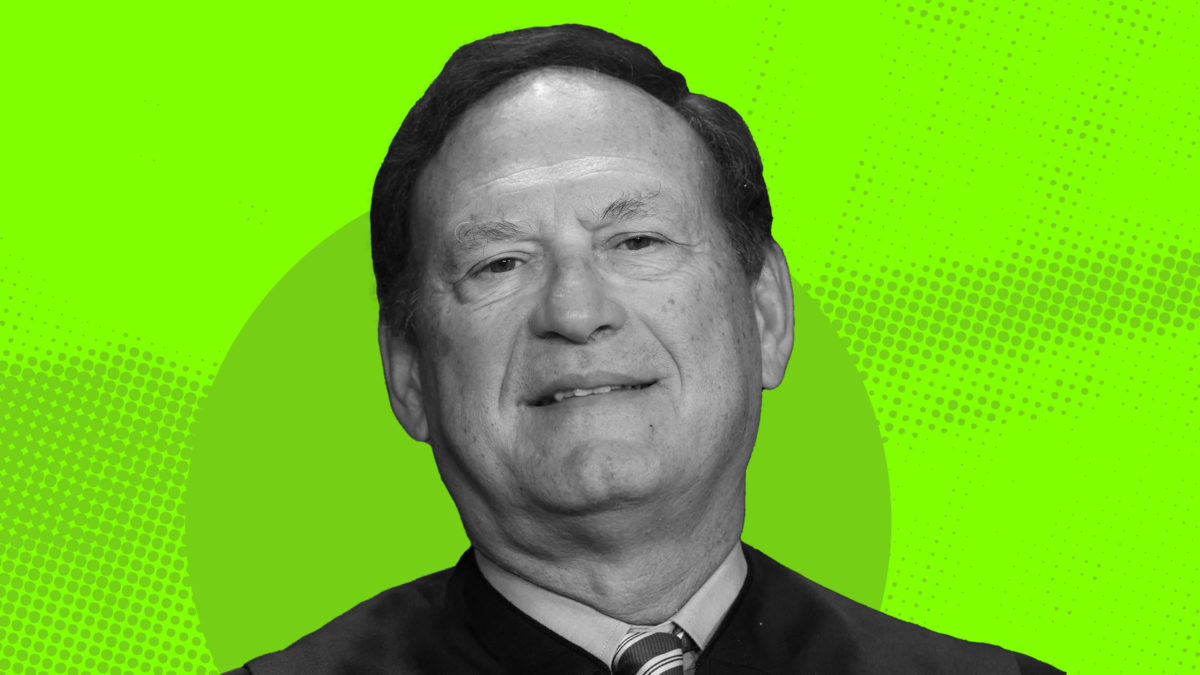A few weeks ago, the highest court in one of the reddest states in America struck an unexpected blow to the anti-abortion legal movement. On March 21, the Supreme Court of Oklahoma found that the state’s constitution includes an inherent right to abortion care when it is necessary to preserve a pregnant person’s life—notwithstanding the recent efforts of the state’s Republican-controlled legislature and Republican Governor Kevin Stitt to ban abortion care entirely. The Court found such a right in the state constitution’s due process clause, and in Article II, Section 2, which provides that “all persons have the inherent right to life, liberty, the pursuit of happiness, and the enjoyment of the gains of their own industry.”
Oklahoma is not alone here. Since the U.S. Supreme Court overruled Roe v. Wade last year, the highest courts of several red states have ruled similarly. In South Carolina, the state supreme court held in Planned Parenthood South Atlantic v. South Carolina that a pregnant person’s right to privacy bars the state’s six-week abortion ban. In Wrigley v. Romanick, the North Dakota Supreme Court upheld a lower court’s injunction of the state’s near-total abortion ban, finding that the law infringed on a pregnant person’s “right of enjoying and defending life and pursuing and obtaining safety.” (In his majority opinion in Dobbs v. Jackson Women’s Health Organization, Justice Samuel Alito emphasized that the decision put abortion back in the hands of “the people and their elected representatives,” so I’m sure he views these developments simply as federalism at work.)
But what sets the Oklahoma Supreme Court’s decision in Oklahoma Call for Reproductive Justice v. Drummond apart from the others is that Oklahoma’s court used Alito’s own reasoning against him. The per curiam opinion in Drummond explicitly states that under Alito’s framework in Dobbs, the “right to terminate a pregnancy” is “deeply rooted in Oklahoma’s history and tradition”—language that tracks the conservative U.S. Supreme Court justices’ statements that the Constitution protects only unenumerated rights that are “deeply rooted in this Nation’s history and tradition.” It’s one thing for a few states to find a right to abortion in their state constitutions. It’s another thing entirely for a state as reliably conservative as Oklahoma to throw Alito’s anti-choice agenda masquerading as legal reasoning right back in his face.
Even more troubling for Alito and the anti-abortion caucus is the fact that the Oklahoma court, by Alito’s own standards, is right. Dobbs relied upon the assertion that because many states criminalized abortion at one point or another, a right to abortion could not be sufficiently deeply rooted. But the Oklahoma Supreme Court also did what the Dobbs Court failed to do, which is actually read Oklahoma’s criminal abortion statute. In doing so, the Oklahoma justices found that since the days of the Oklahoma Territory, abortion was allowed when necessary to preserve the life of the pregnant person. A predecessor of this law was passed in the Oklahoma Territory in 1890, then again immediately after statehood in 1907. The law was recodified multiple times in the early 20th century, and remained in effect even after the Oklahoma Court of Criminal Appeals declared it unconstitutional under Roe. Through persistent recodification of a law that explicitly allows abortion, Oklahoma lawmakers created a tradition that the Oklahoma Supreme Court, acting on instructions from Alito, simply could not ignore.
The Oklahoma Supreme Court went on to invalidate 63 O.S. § 1-731.4, one of several anti-choice laws passed by Oklahoma lawmakers in the wake of Dobbs, because the law unconstitutionally limits a pregnant person’s right to an abortion when they are experiencing a medical emergency. The Court reasoned that such a limitation would require a person to wait until an emergency presented itself to seek lifesaving care, even if their medical provider believed that the abortion was medically necessary. Such a limitation, the Court reasoned, significantly impairs the inherent constitutional right to an abortion. The criminal nature of Oklahoma’s statute, the court concluded, is “only half the story,” because although it always outlawed abortion, “it also always acknowledged a limited exception.”

When the decision doesn’t go the way you wanted it to go (Photo by OLIVIER DOULIERY/AFP via Getty Images
In a concurrence, Justice Yvonne Kauger removed any doubt that the court reached the right conclusion in Drummond. Her opinion went beyond the legal history and tradition around abortion in Oklahoma to address the history of misogyny in which the right to abortion care nonetheless endured: Even when women in Oklahoma couldn’t own property, or vote, or get a credit card, they could still get an abortion. As recently as 1993, state law did not protect a woman from being raped by her husband. It did, however, protect her right to abortion care.
Kauger continued with a cautionary tale from neighboring Texas, telling the stories of two young women in Texas who were forced to travel out of the state to terminate nonviable and potentially lethal pregnancies. One woman’s medical provider refused to even transfer her medical records to an out-of-state abortion provider for fear of prosecution under Texas’s abortion ban. She closed by focusing on the stakes of the case before Oklahoma’s court: For some women, the draconian law which allows no exception, in the absence of a medical emergency to preserve the life of the mother, may be a death sentence.”
The real-world impact of Dobbs and the anti-choice laws that followed is well documented. Countless anecdotes like those discussed in Kauger’s concurrence have surfaced of people waiting in agony while nervous doctors and hesitant lawyers ponder the legal risk of performing a life-saving abortion in a post-Roe world. As access to abortion care tightens, maternal mortality increases. Abortion care is healthcare, and total bans are a threat to pregnant people’s lives. By ignoring that reality in the face of undeniable evidence, Republican state leaders are knowingly putting people’s lives at risk.

When the decision doesn’t go the way you wanted it to go, either (Photo by Alex Wong/Getty Images)
Drummond gave little room for Oklahoma’s anti-abortion Republicans to complain about the decision. The decision left intact the statutory framework under which Oklahoma has operated under for over 120 years: Abortion is still generally illegal in Oklahoma, and medical providers still face criminal liability if they perform an abortion outside the preservation-of-life exception. Even so, Stitt, who boasted about signing the nation’s strictest abortion ban a full month before the Dobbs opinion was even released, excoriated the Drummond Court an as “activist majority” and complained that the opinion failed to even “mention the unborn.” But by smearing the majority as “activists” and complaining about an opinion that doesn’t change much for Oklahoma, Stitt made clear where anti-choice conservatives hope to take the law next.
When he wrote Dobbs, Alito knew that trigger laws in red states would kick in after the opinion’s release, and that many states would have total abortion bans in place by the end of the week. What he did not account for was the courts in those same red states exposing the flaws in his reasoning. Dobbs is a weak, reactionary opinion that started with a desired outcome and backfilled a rationale like a legalese mad lib, failing to button up the issue of abortion access in the way Alito had hoped. If the decisions from the high courts in South Carolina, North Dakota, and now Oklahoma are any indication, conservatives should be worried about where and how he’ll fail next.

